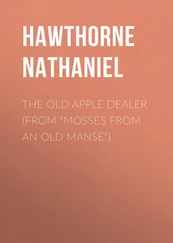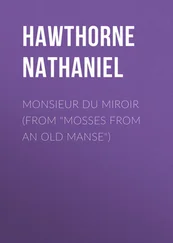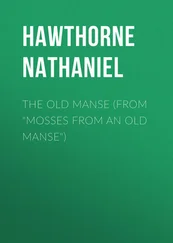Nathaniel Hawthorne - Our Old Home - A Series of English Sketches
Здесь есть возможность читать онлайн «Nathaniel Hawthorne - Our Old Home - A Series of English Sketches» — ознакомительный отрывок электронной книги совершенно бесплатно, а после прочтения отрывка купить полную версию. В некоторых случаях можно слушать аудио, скачать через торрент в формате fb2 и присутствует краткое содержание. Жанр: literature_19, foreign_antique, foreign_prose, на английском языке. Описание произведения, (предисловие) а так же отзывы посетителей доступны на портале библиотеки ЛибКат.
- Название:Our Old Home: A Series of English Sketches
- Автор:
- Жанр:
- Год:неизвестен
- ISBN:нет данных
- Рейтинг книги:4 / 5. Голосов: 1
-
Избранное:Добавить в избранное
- Отзывы:
-
Ваша оценка:
- 80
- 1
- 2
- 3
- 4
- 5
Our Old Home: A Series of English Sketches: краткое содержание, описание и аннотация
Предлагаем к чтению аннотацию, описание, краткое содержание или предисловие (зависит от того, что написал сам автор книги «Our Old Home: A Series of English Sketches»). Если вы не нашли необходимую информацию о книге — напишите в комментариях, мы постараемся отыскать её.
Our Old Home: A Series of English Sketches — читать онлайн ознакомительный отрывок
Ниже представлен текст книги, разбитый по страницам. Система сохранения места последней прочитанной страницы, позволяет с удобством читать онлайн бесплатно книгу «Our Old Home: A Series of English Sketches», без необходимости каждый раз заново искать на чём Вы остановились. Поставьте закладку, и сможете в любой момент перейти на страницу, на которой закончили чтение.
Интервал:
Закладка:
The Leam, – the "high complectioned Leam," as Drayton calls it, – after drowsing across the principal street of the town beneath a handsome bridge, skirts along the margin of the Garden without any perceptible flow. Heretofore I had fancied the Concord the laziest river in the world, but now assign that amiable distinction to the little English stream. Its water is by no means transparent, but has a greenish, goose-puddly hue, which, however, accords well with the other coloring and characteristics of the scene, and is disagreeable neither to sight nor smell. Certainly, this river is a perfect feature of that gentle picturesqueness in which England is so rich, sleeping, as it does, beneath a margin of willows that droop into its bosom, and other trees, of deeper verdure than our own country can boast, inclining lovingly over it. On the Garden-side it is bordered by a shadowy, secluded grove, with winding paths among its boskiness, affording many a peep at the river's imperceptible lapse and tranquil gleam; and on the opposite shore stands the priory-church, with its churchyard full of shrubbery and tombstones.
The business portion of the town clusters about the banks of the Leam, and is naturally densest around the well to which the modern settlement owes its existence. Here are the commercial inns, the post-office, the furniture-dealers, the iron-mongers, and all the heavy and homely establishments that connect themselves even with the airiest modes of human life; while upward from the river, by a long and gentle ascent, rises the principal street, which is very bright and cheerful in its physiognomy, and adorned with shop-fronts almost as splendid as those of London, though on a diminutive scale. There are likewise side-streets and cross-streets, many of which are bordered with the beautiful Warwickshire elm, a most unusual kind of adornment for an English town; and spacious avenues, wide enough to afford room for stately groves, with foot-paths running beneath the lofty shade, and rooks cawing and chattering so high in the tree-tops that their voices get musical before reaching the earth. The houses are mostly built in blocks and ranges, in which every separate tenement is a repetition of its fellow, though the architecture of the different ranges is sufficiently various. Some of them are almost palatial in size and sumptuousness of arrangement. Then, on the outskirts of the town, there are detached villas, enclosed within that separate domain of high stone fence and embowered shrubbery which an Englishman so loves to build and plant around his abode, presenting to the public only an iron gate, with a gravelled carriage-drive winding away towards the half-hidden mansion. Whether in street or suburb, Leamington may fairly be called beautiful, and, at some points, magnificent; but by and by you become doubtfully suspicious of a somewhat unreal finery: it is pretentious, though not glaringly so; it has been built with malice aforethought, as a place of gentility and enjoyment. Moreover, splendid as the houses look, and comfortable as they often are, there is a nameless something about them, betokening that they have not grown out of human hearts, but are the creations of a skilfully applied human intellect: no man has reared any one of them, whether stately or humble, to be his lifelong residence, wherein to bring up his children, who are to inherit it as a home. They are nicely contrived lodging-houses, one and all, – the best as well as the shabbiest of them, – and therefore inevitably lack some nameless property that a home should have. This was the case with our own little snuggery in Lansdowne Circus, as with all the rest; it had not grown out of anybody's individual need, but was built to let or sell, and was therefore like a ready-made garment, – a tolerable fit, but only tolerable.
All these blocks, ranges, and detached villas are adorned with the finest and most aristocratic manes that I have found anywhere in England, except, perhaps, in Bath, which is the great metropolis of that second-class gentility with which watering-places are chiefly populated. Lansdowne Crescent, Lansdowne Circus, Lansdowne Terrace, Regent Street, Warwick Street, Clarendon Street, the Upper and Lower Parade: such are a few of the designations. Parade, indeed, is a well-chosen name for the principal street, along which the population of the idle town draws itself out for daily review and display. I only wish that my descriptive powers would enable me to throw off a picture of the scene at a sunny noontide, individualizing each character with a touch the great people alighting from their carriages at the principal shop-doors; the elderly ladies and infirm Indian officers drawn along in Bath-chairs; the comely, rather than pretty, English girls, with their deep, healthy bloom, which an American taste is apt to deem fitter for a milkmaid than for a lady; the mustached gentlemen with frogged surtouts and a military air; the nursemaids and chubby children, but no chubbier than our own, and scampering on slenderer legs; the sturdy figure of John Bull in all varieties and of all ages, but ever with the stamp of authenticity somewhere about him.
To say the truth, I have been holding the pen over my paper, purposing to write a descriptive paragraph or two about the throng on the principal Parade of Leamington, so arranging it as to present a sketch of the British out-of-door aspect on a morning walk of gentility; but I find no personages quite sufficiently distinct and individual in my memory to supply the materials of such a panorama.
Oddly enough, the only figure that comes fairly forth to my mind's eye is that of a dowager, one of hundreds whom I used to marvel at, all over England, but who have scarcely a representative among our own ladies of autumnal life, so thin, careworn, and frail, as age usually makes the latter.
I have heard a good deal of the tenacity with which English ladies retain their personal beauty to a late period of life; but (not to suggest that an American eye needs use and cultivation before it can quite appreciate the charm of English beauty at any age) it strikes me that an English lady of fifty is apt to become a creature less refined and delicate, so far as her physique goes, than anything that we Western people class under the name of woman. She has an awful ponderosity of frame, not pulpy, like the looser development of our few fat women, but massive with solid beef and streaky tallow; so that (though struggling manfully against the idea) you inevitably think of her as made up of steaks and sirloins. When she walks, her advance is elephantine. When she sits down, it is on a great round space of her Maker's footstool, where she looks as if nothing could ever move her. She imposes awe and respect by the muchness of her personality, to such a degree that you probably credit her with far greater moral and intellectual force than she can fairly claim. Her visage is usually grim and stern, seldom positively forbidding, yet calmly terrible, not merely by its breadth and weight of feature, but because it seems to express so much well-founded self-reliance, such acquaintance with the world, its toils, troubles, and dangers, and such sturdy capacity for trampling down a foe. Without anything positively salient, or actively offensive, or, indeed, unjustly formidable to her neighbors, she has the effect of a seventy-four gun-ship in time of peace; for, while you assure yourself that there is no real danger, you cannot help thinking how tremendous would be her onset, if pugnaciously inclined, and how futile the effort to inflict any counter-injury. She certainly looks tenfold – nay, a hundred-fold – better able to take care of herself than our slender-framed and haggard womankind; but I have not found reason to suppose that the English dowager of fifty has actually greater courage, fortitude, and strength of character than our women of similar age, or even a tougher physical endurance than they. Morally, she is strong, I suspect, only in society, and in the common routine of social affairs, and would be found powerless and timid in any exceptional strait that might call for energy outside of the conventionalities amid which she has grown up.
Читать дальшеИнтервал:
Закладка:
Похожие книги на «Our Old Home: A Series of English Sketches»
Представляем Вашему вниманию похожие книги на «Our Old Home: A Series of English Sketches» списком для выбора. Мы отобрали схожую по названию и смыслу литературу в надежде предоставить читателям больше вариантов отыскать новые, интересные, ещё непрочитанные произведения.
Обсуждение, отзывы о книге «Our Old Home: A Series of English Sketches» и просто собственные мнения читателей. Оставьте ваши комментарии, напишите, что Вы думаете о произведении, его смысле или главных героях. Укажите что конкретно понравилось, а что нет, и почему Вы так считаете.












